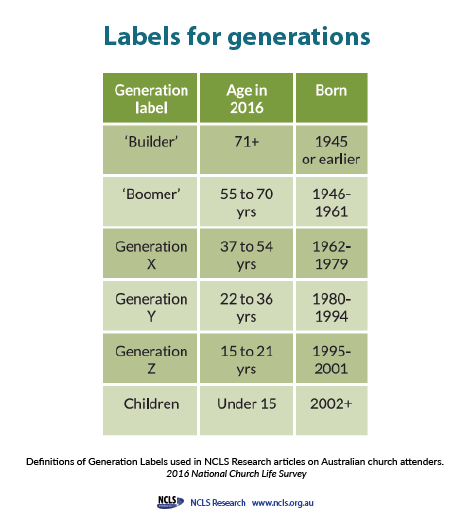When we see a difference in the attitudes and behaviour of age groups, there are three ways to understand the possible sources. They are known in social sciences as "age, period and cohort (or generational) effects". Peel back the labels to see what our articles define as Builder, Boomer, Gen X, Y and Z.
Age/ Life stage
A person's age represents the biological and social reality of the number of years since birth. Different life stages can impact on religious activities e.g. young families and the elderly.
Historical period
All age groups experience the events and impact of their shared historical period, to varying degrees. These are widespread, broad-scale effects from which no one is immune. Examples of such effects are war, changes in the role of women or change in social values or meaning systems.
Cohort Generation
The word "generation" has become a popular shorthand for "cohort generation". In a cohort generation, members of cohorts are defined as born at a certain time. They share characteristics in common due to their shared formative experiences - such as wars, depression or economic boom. The key is that these experiences shape cohort members in a lasting and distinctive way.
Labels for generations
There are many ways to define and label generations. In our articles we take the following approach.

N.B. The 'baby boom' in Australia ended at 1961 (ABS, 2009). The commonly used definition of 1946-64 for Boomers is based on US benchmarks.



